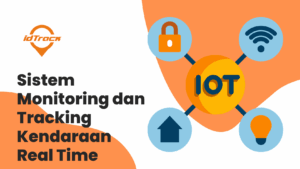In a world where location matters more than ever, understanding the Global Positioning System (GPS) is crucial. Whether you’re navigating unfamiliar streets, tracking a lost smartphone, or managing a fleet of vehicles, GPS servers play a pivotal role in ensuring your location-based services run smoothly. In this beginner’s guide to GPS servers, we will explore what GPS is, its meaning, how the GPS system functions, and why GPS servers are indispensable.
What’s GPS?
GPS, or Global Positioning System, is a ubiquitous technology that has become a part of our daily lives. But what is it, and how does it work?
GPS Meaning and Basics
GPS is a satellite-based navigation system that enables users to pinpoint their exact location anywhere on Earth. The system comprises a network of satellites orbiting the planet, ground control stations, and GPS receivers. These components work together to provide highly accurate positioning and timing information to users worldwide.
At its core, GPS uses a process called trilateration. It relies on signals from multiple satellites to calculate the user’s exact location. The more satellites your GPS receiver can connect to, the more accurate your position becomes.
How Does GPS Work?
GPS operates on a simple yet effective principle. The GPS satellites transmit signals that include the satellite’s precise location and the time the signal was sent. Your GPS receiver, such as your smartphone or car navigation system, receives these signals and calculates the time it took for each signal to arrive. By comparing the time differences, the receiver can determine its exact distance from each satellite. Once it has the distances, it can calculate your precise location through trilateration.
GPS is incredibly accurate, with most civilian-grade GPS receivers providing location data within a few meters. The technology is used for a wide range of applications, from personal navigation to tracking vehicles and even conducting scientific research.
The GPS System
To understand GPS servers better, let’s delve into the inner workings of the GPS system.
The GPS Constellation
The GPS system comprises a constellation of 24 satellites orbiting the Earth at an altitude of approximately 12,550 miles. These satellites are spread across six orbital planes, ensuring that at least four satellites are visible from any point on Earth at any given time.
This constellation is meticulously designed to provide global coverage and ensure that your GPS receiver can always establish a connection with multiple satellites.
GPS Signals
Each GPS satellite emits two types of signals: L1 and L2. L1 signals are used by civilian GPS receivers, while L2 signals are reserved for military use. These signals contain a wealth of information, including the satellite’s location, the time the signal was sent, and the satellite’s unique identifier.
GPS Servers: The Glue Holding It All Together
Now that we understand the fundamental concepts of GPS, let’s explore the role of GPS servers in the grand scheme of things. GPS servers are the unsung heroes of the GPS ecosystem, working behind the scenes to ensure that the data collected by GPS satellites is processed, stored, and made available for various applications.
Read : Can You Track A Car by Your Phone?
GPS Servers – The Unsung Heroes
GPS servers play a pivotal role in ensuring the accuracy and reliability of location-based services. They serve as intermediaries between GPS satellites and end-user applications. Here’s how they work:
Data Collection
GPS servers collect the raw data transmitted by the GPS satellites. This data includes the signals’ time of arrival, satellite location, and other essential information. This data collection process is continuous and happens in real-time.
Data Processing
Once the raw data is collected, GPS servers process it to calculate accurate position information. This involves complex mathematical algorithms that take into account the time delay between signal transmission and reception, satellite positions, and more. The processed data is then converted into latitude and longitude coordinates, which are easier for end-user devices to interpret.
Data Storage
GPS servers also store historical data, enabling users to track the movement of objects or people over time. This data storage is crucial for applications like tracking vehicles, monitoring wildlife, and even analyzing natural disasters.
Data Distribution
One of the most critical functions of GPS servers is the distribution of accurate location data to end-user devices. This information is transmitted to GPS-enabled devices, such as smartphones, car navigation systems, and other location-based services, ensuring that you can find your way, track your assets, or locate your lost phone.
The Importance of GPS Servers
Now that we’ve seen how GPS servers operate, let’s understand why they are so essential in the modern world.
Reliable Navigation
GPS servers ensure that the navigation systems in your car, on your smartphone, or in your handheld GPS device function seamlessly. Without them, you’d struggle to find your way in unfamiliar places.
Asset Tracking
Businesses rely on GPS servers to track their assets, such as delivery trucks or cargo containers. This not only helps in efficient route planning but also in monitoring the security and safety of valuable assets.
Search and Rescue
In emergencies, GPS servers play a crucial role in search and rescue operations. They can help pinpoint the location of distress signals, making it easier for rescue teams to find individuals in need.
Scientific Research
GPS servers are integral in scientific research, including studying the movement of tectonic plates, monitoring climate change, and tracking wildlife migration patterns.
Choosing the Right GPS Server
When it comes to selecting a GPS server, you’ll want to consider several factors to ensure it meets your needs.
Compatibility
Ensure that the GPS server you choose is compatible with your GPS receivers or devices. Different devices may require specific server configurations or protocols.
Data Accuracy
Look for a GPS server that provides high levels of data accuracy. This is especially important for applications where precision is critical, such as geodetic surveys or autonomous vehicles.
Data Security
Data security is crucial, especially when dealing with sensitive information or tracking valuable assets. Make sure the GPS server you select offers robust security features to protect your data.
Scalability
Consider your future needs. Will you need to expand your GPS server’s capacity as your operations grow? Look for a server solution that is scalable to accommodate your evolving requirements.
In this beginner’s guide to GPS servers, we’ve explored the world of GPS, its meaning, how the GPS system functions, and the crucial role that GPS servers play. GPS has become an integral part of our lives, helping us navigate, track assets, conduct scientific research, and much more. GPS servers quietly work in the background, ensuring the seamless operation of location-based services.
So, the next time you use your GPS to find your way or track a delivery, remember the unsung heroes – the GPS servers – making it all possible.
GPS servers are the backbone of modern location-based services, and understanding their significance is the first step in harnessing the power of accurate, real-time location data.
Whether you’re a business owner looking to improve your fleet management, a scientist conducting research, or simply someone navigating the world, GPS servers are an integral part of your daily life.
If you have any questions or would like to learn more about GPS servers, feel free to leave a comment below. We’re here to help you on your journey to understanding this fascinating technology.











Leave a Comment